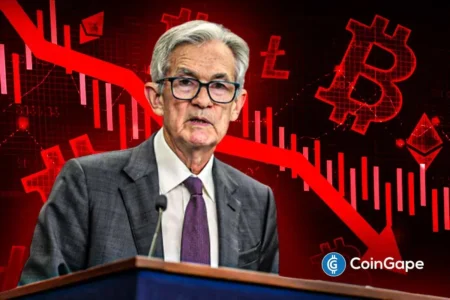BlackRock Bitcoin ETF: Revolutionizing Cryptocurrency Investment
In a landmark achievement for the cryptocurrency sector, the BlackRock Bitcoin ETF (IBIT) has reached an impressive $91.06 billion in assets under management (AuM), solidifying its position as a leader in the U.S. Bitcoin ETF market. This growth underscores the increasing institutional and retail interest in Bitcoin as a regulated investment vehicle. Since its inception in January 2024, IBIT has experienced significant inflows, highlighting its popularity among investors eager to gain exposure to Bitcoin without dealing with the complexities of direct ownership.
Unprecedented Growth and Cumulative Inflows
The latest figures indicate that BlackRock’s Bitcoin ETF has accumulated $58.04 billion in net inflows as of August 13, despite no single-day net inflow recorded on that date. This data demonstrates the continuous investor confidence in IBIT, which currently holds 3.72% of the total Bitcoin supply. With over 54.82 million shares reported, the value of these shares reached $3.79 billion, indicating strong market demand.
IBIT’s record growth extends beyond its current statistics. In the debut month alone, the ETF garnered more than $5 billion in net inflows, setting a historical benchmark for any U.S. ETF launched in that time frame. As of mid-July 2025, it surpassed the $80 billion milestone in cumulative inflows, distinguishing itself from competitors in the rapidly evolving cryptocurrency landscape.
Competitive Landscape: A View of Other U.S. Bitcoin ETFs
While the BlackRock Bitcoin ETF leads the market, other U.S. Bitcoin ETFs have also reported noteworthy asset totals. Fidelity’s FBTC holds $24.77 billion in assets with $12.07 billion in cumulative inflows, while Grayscale’s GBTC manages $22.18 billion, albeit with $23.72 billion in cumulative outflows. Ark Invest’s ARKB and Bitwise’s BITB follow with assets of $5.58 billion and $5.02 billion, respectively. BlackRock’s substantial lead—almost quadruple that of its nearest competitor—demonstrates both its draw for investors and the ETF’s robust infrastructure for managing Bitcoin investments.
Bitcoin’s Role in ETF Valuations and Market Performance
Bitcoin’s price trajectory has played a pivotal role in bolstering valuations for ETFs, including BlackRock’s IBIT. Recent events have seen Bitcoin trading near all-time highs, reaching approximately $124,000, fueled by optimism surrounding a possible U.S. rate cut. Such monetary easing is attractive for cryptocurrency investment, offering the potential for higher returns.
However, fluctuations in the market are inevitable. After the release of the U.S. Producer Price Index (PPI) data for July, Bitcoin’s value saw a sharp pullback. The cryptocurrency’s price dropped below $118,000 as traders reacted to unexpectedly high inflation figures, which wiped out over $930 million in leveraged positions and resulted in more than $1 billion in liquidations over a short 24-hour period.
The Influence of Inflation Rates and Market Sentiment
The recent sharp downturn in Bitcoin’s price reflects the delicate balance between market sentiment and external economic indicators. Investors are closely monitoring inflation rates, as they significantly influence monetary policy and, by extension, investment behavior in the cryptocurrency sector. The impact of inflation on asset valuation can lead to volatility, which is further complicated by geopolitical and economic events.
This environment poses both opportunities and risks for Bitcoin ETFs like IBIT. On one hand, rising inflation can push more investors toward hedging against perceived financial instability by investing in Bitcoin. On the other hand, negative data releases can trigger sell-offs, impacting overall valuations and inflows into these funds.
The Future of Bitcoin ETFs and Investment Strategies
As the cryptocurrency market continues evolving, Bitcoin ETFs like the BlackRock Bitcoin ETF are set to play a crucial role in shaping investment strategies. Their rise has democratized Bitcoin investments, offering retail and institutional investors a compliant way to participate in cryptocurrency without the need for substantial capital or technical know-how.
The ability to manage diversified portfolios while benefiting from the regulatory backing of established financial institutions appeals to a broader demographic. As the ETF landscape matures, ongoing developments in market regulations and infrastructure improvements will likely impact their growth trajectory and the strategies employed by investors.
Conclusion: Navigating the Future of Cryptocurrency Investments
The unprecedented growth of the BlackRock Bitcoin ETF reflects not just its leadership but also the broader market’s acceptance of cryptocurrencies as legitimate investment avenues. As inflation and macroeconomic trends continue to shape market dynamics, the ETF’s robust structure positions it favorably to attract even more investors. The ongoing commitment to regulation and transparency will foster greater trust, potentially leading to increased investments in Bitcoin-related products. As the cryptocurrency market progresses, ETFs like IBIT will play an integral role in navigating new opportunities and challenges for investors.
In sum, BlackRock’s IBIT has not only set new records in assets but also has the potential to reshape how investments in Bitcoin and cryptocurrencies are approached in the future.

![Zcash [ZEC]: Open Interest Reaches Multi-Month High – Is a Price Move On the Horizon?](https://icoinmarket.com/wp-content/uploads/2025/08/Kelvin-_90_-1000x600.webp-300x180.webp)














